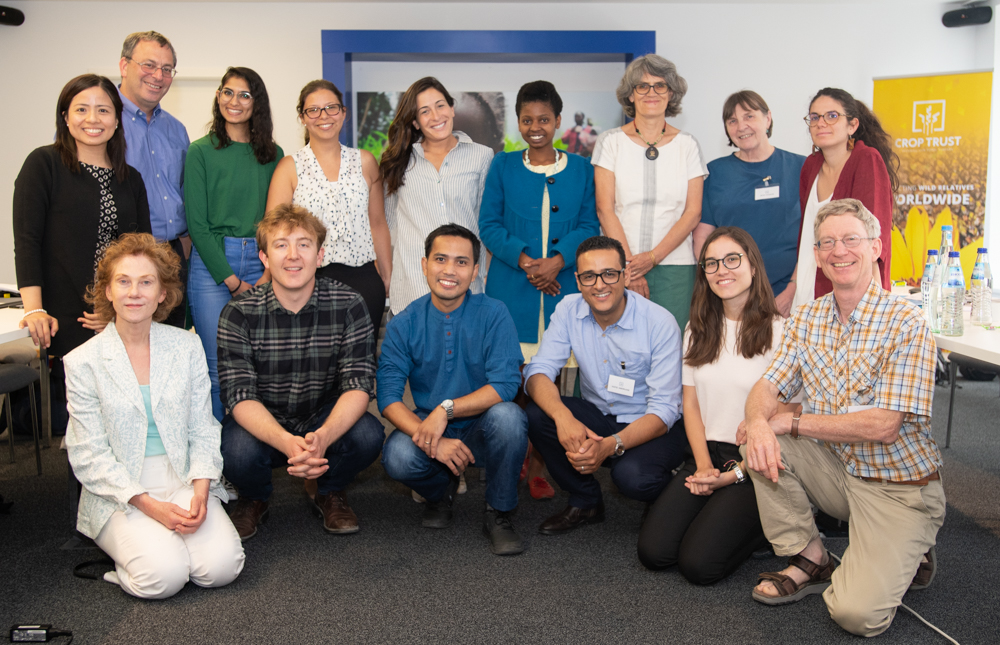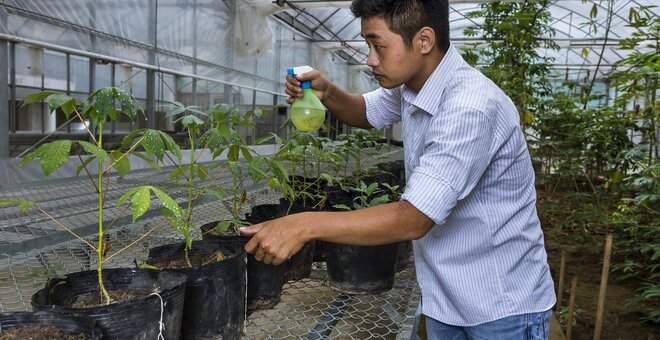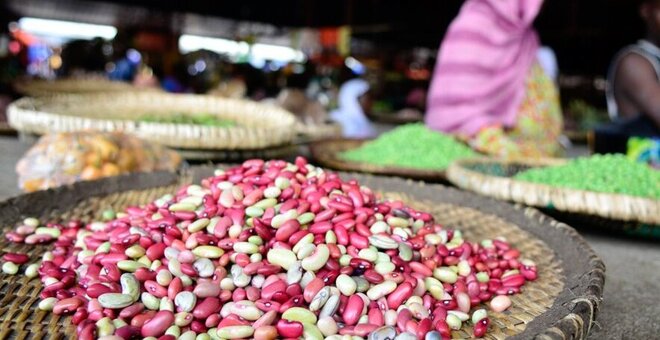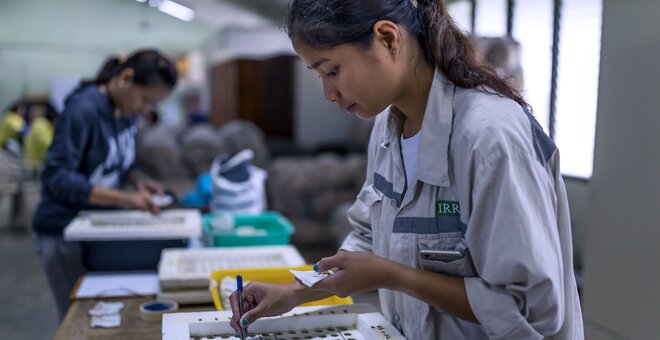Genebank Impact Fellowship

2018 Genebank Impact Fellows
The Crop Trust’s Genebank Impacts Fellowship Program was established in 2018. It provides early career professionals with hands-on experience in evaluating the impacts of genebanks and building resilient food systems amid rising demand and a changing climate. The Program allows students and researchers to develop expertise in impact assessment while working closely with leading specialists in plant genetic resources conservation.
Each Fellowship cycle provides an opportunity for selected participants to:
- Gain experience in evaluating the impacts of partner genebanks.
- Receive mentorship from genebank managers and guidance from agricultural economists and conservation specialists.
- Advance understanding of the value of the global genebank system in ensuring the availability of crop diversity to breeders, scientists and farmers, now and in the future.
- Assess the links between ex situ conservation of crop diversity and global development goals, such as food security and climate action.
From 2018 to 2022, the Fellowship was supported by the CGIAR Genebank Platform and focused on international genebanks. In 2024, the Fellowship shifted focus with support by the Seeds for Resilience Project. It expanded to document the impacts of national genebanks and their local partners in promoting the use of crop diversity.
Fellowship Cohorts
2018 Fellows
- Sefra Alexandra (SPC CePaCT)
- Donald Villanueva (IRRI)
- Hafid Aberkane (CIMMYT wheat/ICARDA)
- Vanessa Ocampo-Giraldo (Bioversity/CIMMYT maize)
- Vivian Bernal-Galeano (CIP)
- Kavengi Kitonga (ICRAF/ILRI)
- Stefania Sellitti (CIAT)
2020 Fellows
- Sophia Lüttringhaus (CIP)
- Abel-Gautier Kouakou (IITA)
- Martin Paul Jr. Tabe-Ojong (ICRISAT)
- Nicholas Tyack (AfricaRice)
- Yuji Enriquez (GHUs/IRRI)
- Rachidi Aboudou (AfricaRice)
2024 Fellows
- Obed Asamoah (Ghana)
- Dereje Tamiru Demie (Ethiopia)
- Bisola Khadijat Oladimeji (Nigeria)
- Natasha Mwansa (Zambia)
- Tobias Okando Recha (Kenya)
Publications
Calls for applications are published in our Join Us page. For more information, stay tuned for updates or contact us directly.
Related News
Connecting Genebanks, Economics and Careers
The Genebank Impacts Fellowship
Two cohorts of young professionals have had the opportunity to leverage their passion for economics and agricultural sciences through a Genebank Impacts Fellowship, supported by the CGIAR Genebank...
16 Nov 2020
16 Nov 2020
Tracing High-iron Beans to the Genebank
A Genebank Platform Impact Fellow looks at the journey of beans from the genebank to farmers’ fields.
Stefania Sellitti may not be able to trace her family history back beyond her great grandfather, but she can trace the...
8 Mar 2019
Documenting the Value of Genebanks
By Melinda Smale and Nelissa Jamora
The CGIAR Genebank Platform, with support from the Crop Trust, is establishing a ‘Genebank Impacts Fellowship Program’.
The program, led by Melinda Smale and Nelissa Jamora, will provide...
14 Feb 2018
14 Feb 2018



